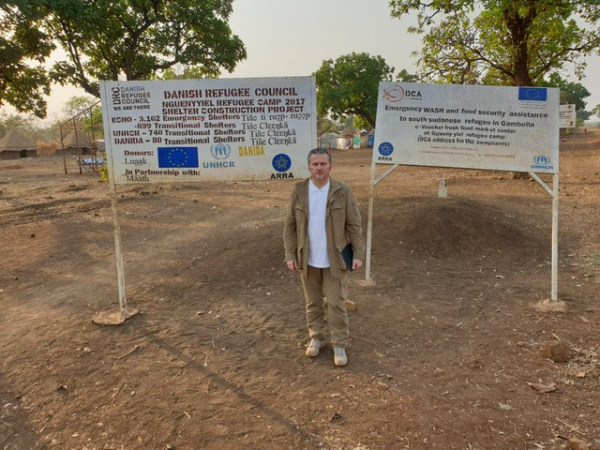Involving European regions in humanitarian aid

In February this year I went on a short but intense mission to Ethiopia with Doctors with Africa CUAMM (University College for Aspiring Missionary Doctors), an association with which the Veneto Region has been cooperating for many years in the field of health and the training of medical and paramedical personnel on the African continent. The association has been active in Africa for about sixty years and today is present in 23 hospitals and 64 districts, specialising in particular in public health, maternal and child care, the fight against AIDS, tuberculosis and malaria, and training in three nursing schools and the Catholic University of Mozambique, in Beira. It is partly owing to the courses and activities organised by CUAMM that Uganda, one of the main countries assisted by the Padua branch of the association, has today achieved self-sufficiency in the medical field, demonstrating that adequate standards of public services can be reached through targeted, sustainable investments.
My visit this year to a country with a population of 104 million and economic growth of 9% over the past decade was particularly important: it took place just a few days before the mission of the French President, Emmanuel Macron, to Djibouti and Ethiopia, where France has signed a series of major agreements in the defence sector, as well as promising EUR 100 million in assistance and support for cultural projects including the conservation of churches and the opening of archaeological excavations. According to the analysts, the purpose of Mr Macron's visit to the Horn of Africa was to re-establish substantial diplomatic and economic relations as a counterbalance to the now dominant position of China.
The Chinese “invasion", as I have witnessed at first hand, is palpable in Ethiopia. Addis Ababa received more than USD 12.1 billion from Chinese state-owned banks between 2000 and 2018, and in March this year the Ethiopian authorities started renegotiating debts incurred for building a railway to connect Addis Ababa with neighbouring Djibouti, rescheduling being needed in order to prevent the collapse of Ethiopian public debt.
The European Union is thin on the ground, its presence limited to a few initiatives. Through the European Emergency Trust Fund for Africa, the EU is pledging to spend EUR 20 million to finance the repairs to the main Nefasit-Dekemhare-Senafe-Zalembessa road in order to facilitate the transport of goods between Ethiopia and the Eritrean ports – a project which has moreover been challenged by the Foundation Human Rights for Eritreans.
At the beginning of April this year, it emerged from the Global Report on Food Crises, presented jointly by the European Union, the Food and Agriculture Organisation (FAO) and the World Food Programme (WFP), that Ethiopia is one of the eight countries in the world where two thirds of the 113 million people affected by severe hunger are concentrated, and one of the countries where water supply problems and the scarcity of safe drinking water are among the main causes of death among infants and children under the age of 15.
The Ethiopian scenario, and that of the Horn of Africa more generally, is therefore a complex one: on the one hand this is a strategic area experiencing strong growth and expansion, albeit contrasted by enormous structural contradictions and shortcomings; on the other, there is China's advance, capable of shaping local conditions through its financial support, whilst the European Union is keeping a low profile (too low), leaving diplomatic initiatives to individual Member States which do not have sufficient critical mass to act as a counterbalance to Beijing's advance. The European Union does not have a clear policy: its interventions are fragmented and lightweight compared to China's strategy.
If we believe in humanitarian cooperation, in my view the approach taken by CUAMM is extremely interesting: with relatively modest expenditure it is possible to launch training projects aimed at guaranteeing self-sufficiency in the health sector. In terms of combating hunger, Europe needs to overcome some of its contradictions in Ethiopia: the Teff flour case and dispute springs to mind, together with the fact that it is becoming increasingly urgent to address the question of water supply and ensure the safety of the water cycle.
Ethiopia precisely mirrors Africa's problems, both ancient and highly modern, and we need to ask ourselves if we can continue to stand on the side-lines: at stake is not only the issue of migratory flows which, if not addressed, could become an element of violent destabilisation for society and the economy in Europe. It is also a question of socio-economic and military balance, something that needs to be assessed with the utmost care: the stakes are very high and the outcome could, for the Europeans, prove fatal.

